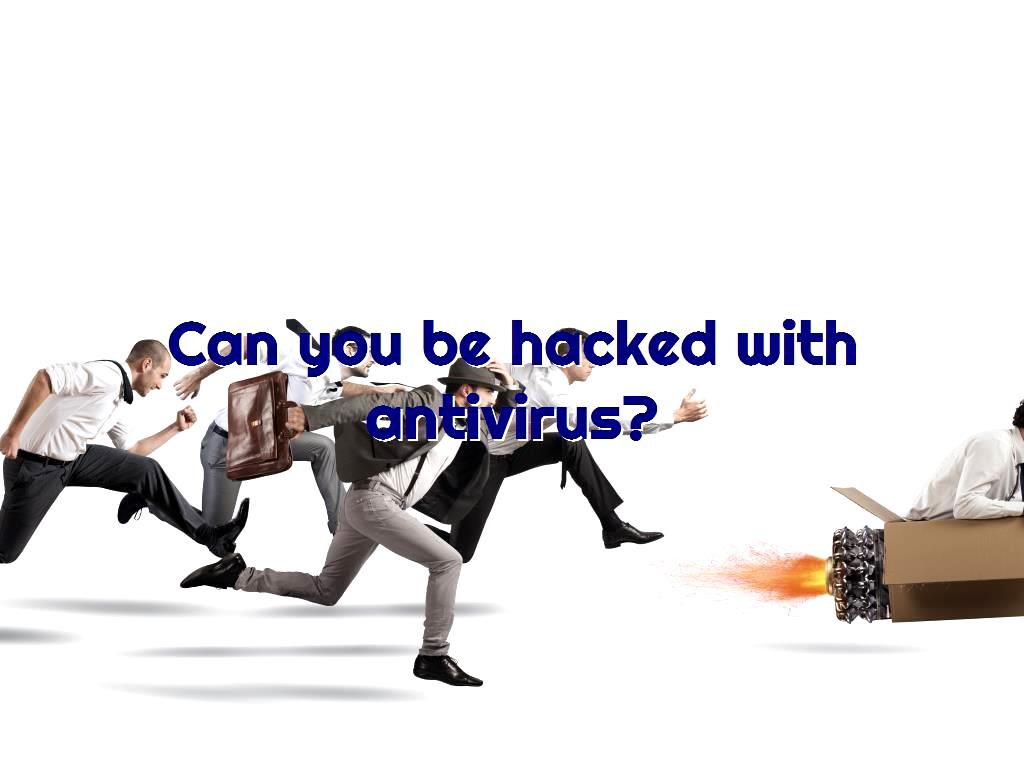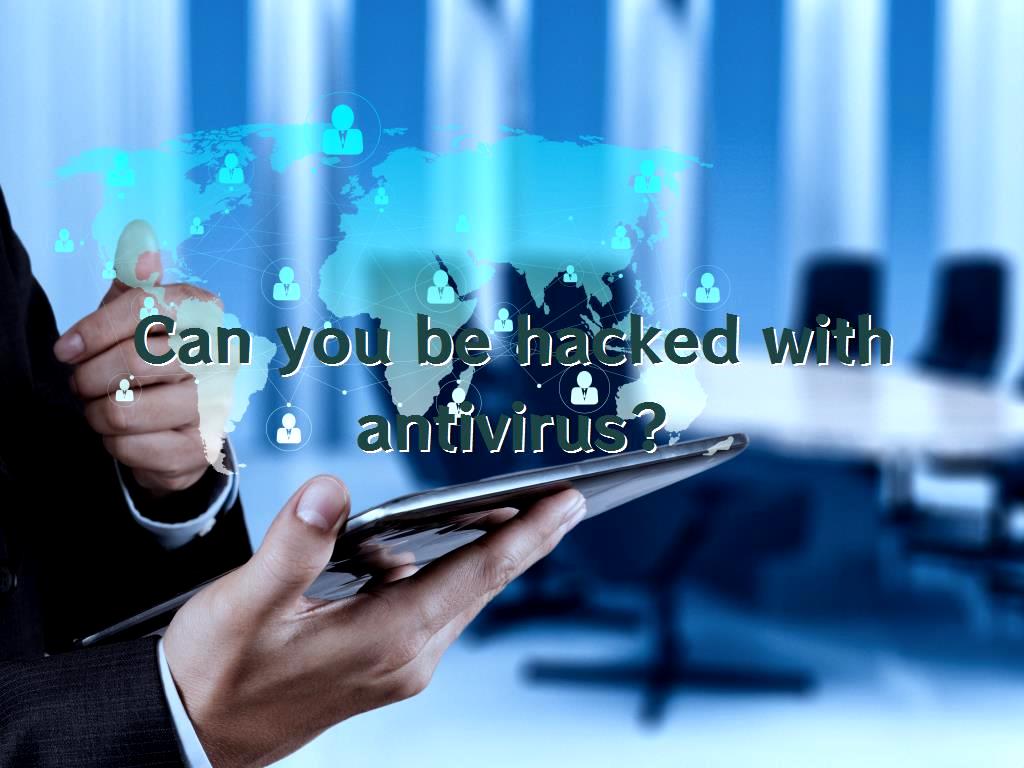Can you be hacked with antivirus?
11 minute(s) read | Published on: Apr 03, 2022 Updated on: Apr 04, 2022 |

Criminals gain unauthorized access to a network and devices to steal sensitive data like monetary information or company intelligence. There is a unit many differing types of hackers. Antivirus software system protects the USA from hackers by scanning for various hacking techniques. And rather like there is a unit many different sorts of hackers, there are many sorts of hacking. An antivirus software system could be a software system developed to guard computers and mobile devices from harmful programs. It preemptively detects, neutralizes, and disposes of malware. Antivirus software system identifies malware and viruses through files in its information. Most additionally scan our devices for suspicious behavior, facultative them to identify threats that don't seem to be enclosed within the statement. Antivirus software systems could be crucial for protecting our digital security and, ultimately, defensive ourselves against hackers. Antivirus immunizes our computers against unauthorized software systems or committal to writing which will threaten our package and, most significantly, our data. It stops hackers by distinguishing threats like viruses and malware so that the user and, therefore, the system will take action against a threat that they could not have renowned regarding otherwise. that would mean not downloading a suspicious file from the web, deleting associate email that asks for private info, or not continuing onto a webpage that they were navigating to identify threats that don't seem to be enclosed within the information.
Were antivirus companies ever hacked?
There is a unit essentially two ways in which associate antivirus are often hacked. the primary one is once the hacker is offensive to the anxious company to steal client data. The opposite one is once the hacker is aware of the weaknesses of a selected antivirus and uses them to infect its users. That's alarming to grasp. no one is wholly secured once it involves a cyberattack, not even an enormous security company. and also, the dangerous issue is that if that happens associated with your antivirus user, you'll become a victim attributable to them. Your MasterCard details and private data can land in the incorrect hands, and World Health Organization is aware of what the hacker can do with it. Some hackers attacked a few antiviruses corporations. They claim that they got access to their antivirus text file and their AI definitions with success. this can be dangerous as a result of if they appear at the ASCII text file, they will recognize what to use to induce into a used laptop. Even though the hacker has the antivirus source code, it'll take a short time before they will notice those weak spots. And by then, the antivirus company had already updated the antivirus code. Hackers may also use a more recent form of malware to focus on noncurrent antivirus packages or operational systems. If you've got an associate older design that's out of date and an antivirus package within the same boat, you'll get infected while not knowing it. it's best to keep your system and security package up to now.
Signs you have been hacked
In today's, antivirus computer code provides tiny peace anti-malware-malware scanners, on the entire, are horrifically inaccurate, particularly with exploits. To combat this, several anti-malware programs program behaviors, typically known as heuristics, to catch antecedently unrecognized malware. Different programs use virtualized environments, system observance, network traffic detection, and every one of them on top of directly to be additional correct. And still, they fail America on an everyday basis.
Here square measure some positive signs you have been hacked and what to try to do in the event of a compromise. Note that in altogether cases, that recommendation is to utterly restore your system to an illustrious innovative state before continuing. This meant data formatting the pc and restoring all programs and information within the period. Today, looking at your software system, it'd merely means clicking on a Restore button. Either way, a compromised laptop will ne'er be sure once more. The recovery steps listed in every class below square measure the recommendations to follow if you do not need to try to do a full restore -- however, once more, a full restore is usually an improved choice, risk-wise.
Fake antivirus messages
There has been a slight decline recently; fake antivirus warning messages are among the surest signs that your system has been compromised. The majority do not realize every time they see the fake antivirus warning that harm has been done. Clicking No or Cancel to prevent the faux virus scan is simply too very little, too late. The malicious software system has already created an unpatched software system, typically the Java Runtime atmosphere or Associate in Nursing Adobe product, to utterly exploit your system.
Why will the computer virus trouble with the "antivirus warning"? This is often a result of the faux scan, which invariably finds loads of "viruses," which may be a lure to shop for their product. Clicking on the provided link sends you to a professional-looking website, complete with glowing letters of advice. There, they raise you for your MasterCard variety and request data. You would be stunned at what percentage of individuals get tricked into providing personal money data. The dangerous guys gain complete management of your system and obtain your MasterCard or banking data. For dangerous guys.
What to do: As before long as you notice the faux antivirus warning message, power down your laptop you would like to avoid wasting something that might be intimate, do so. However, the earlier you pull off your computer, the better. Boot up the computer system in Safe Mode, No Networking, and check out to uninstall the recently put Either means. Follow up by attempting to revive your system to a state previous to the exploitation. If roaring, take a look at the pc in regular mode and ensure that the faux antivirus warnings are gone. Then follow up with a whole antivirus scan. Often, the scanner can notice different sneak remnants left behind.
Unwanted browser toolbars
There has been a slight decline recently; fake antivirus warning messages area unit among the surest signs that your system has been compromised. What the majority do realize in life is that by the time they see the fake antivirus warning, the harm has been done. Clicking No or Cancel to prevent the faux virus scan is simply too very little, too late. The malicious software system has already created an unpatched software system, typically the Java Runtime atmosphere or Associate in Nursing Adobe product, to utterly exploit your system.
Why will the computer virus trouble with the "antivirus warning"? This is due to the faux scan, which invariably finds loads of "viruses," maybe a lure to shop for their product. Clicking on the provided link sends you to a professional-looking website, complete with glowing letters of advice. There, they raise you for your MasterCard variety and request data. You would be stunned at what percentage of individuals get tricked into providing personal money data. The dangerous guys gain complete management of your system and obtain your MasterCard or banking data. For dangerous guys, it is the Sangraal of hacking.
What to do: As before long as you notice the faux antivirus warning message, power down your laptop you would like to avoid wasting something that might be intimate, do so. However, the earlier you pull off your computer, the better. Boot up the computer system in Safe Mode, No Networking, and check out to uninstall the recently put Either means. Follow up by attempting to revive your system to a state previous to the exploitation. If roaring, take a look at the pc in regular mode and ensure that the faux antivirus warnings are gone. Then follow up with a whole antivirus scan. Often, the scanner can notice different sneak remnants left behind.
Redirected in internet
Many hackers create their living by redirecting your browser somewhere aside from traveling. The hacker gets paid by obtaining your clicks to see on somebody else's website; usually, people who do not know that the clicks to their website are from malicious redirection.
You can usually spot this sort of malware by typewriting many related, quite common words into web search engines and checking to visualize whether or not similar websites seem within the results -- nearly always with no actual connectedness to your terms. Sadly, several of today's redirected web searches area units well hidden from the user through the use of different proxies, that the counterfeit results area unit ne'er came to alert the user. In general, if you've got bogus toolbar programs, you are additionally being redirected. Technical users who need to verify will sniff their browser or network traffic. The traffic sent and came can continually be different on a compromised pc vs. Associate in Nursing uncompromised computer.
What to do: Follow similar directions as higher than. Typically removing the counterfeit toolbars and programs is enough for malicious redirection.
Frequent random pop-ups
This famous sign that you have been hacked is also among the additional annoying ones. once you obtain random browser pop-ups from websites that do not commonly generate them, your system has been compromised. It's like battling email spam, but worse.
What to do: to not sound sort of a broken record, however generally, random pop-ups area unit generated by one among the three previous malicious mechanisms noted higher than. You'll have to induce obviate phony toolbars and different programs if you even hope to persuade prevent the pop-ups.

Unexpected software installs
Unwanted and sudden software system installs square measure an enormous sign that your computer system has seemingly been hacked.
Most programs were computer viruses that modified legitimate alternative programs in the malware period. They did this to hide higher. For no matter reason, most malware programs of late re Trojans and worms usually install themselves like legitimate programs. this could be due to their creators trying to steer a thin line once the courts catch up to them. They'll arrange to say one thing like, "But we tend to square measure a legitimate software system company." overtimes, the unwanted software system is lawfully put in by alternative programs, therefore scan your license agreements. Typically license agreements plainly state that they're going to be putting in one or a lot of alternative programs. Usually, you'll prefer those alternative put-in programs; at alternative times, you cannot.
What to do: There square measure several free programs that show you all of your put-in programs and allow you to disable them by selection. My favorite for Windows is Autoruns. It does not offer you each program put in; however, it can tell you those that mechanically begin once your computer is restarted.
Summary
Antivirus is one of the safety layers that almost all folks use. It offers protection against cyberattacks and prevents the user from changing into a victim during this battle. Antivirus ought to be only one layer of protection in your security suites. Hackers try to hack you, not your antivirus, once they target your laptop. They're going to attempt to exploit the weaknesses of your operating system too.
Click to audit your website SEO